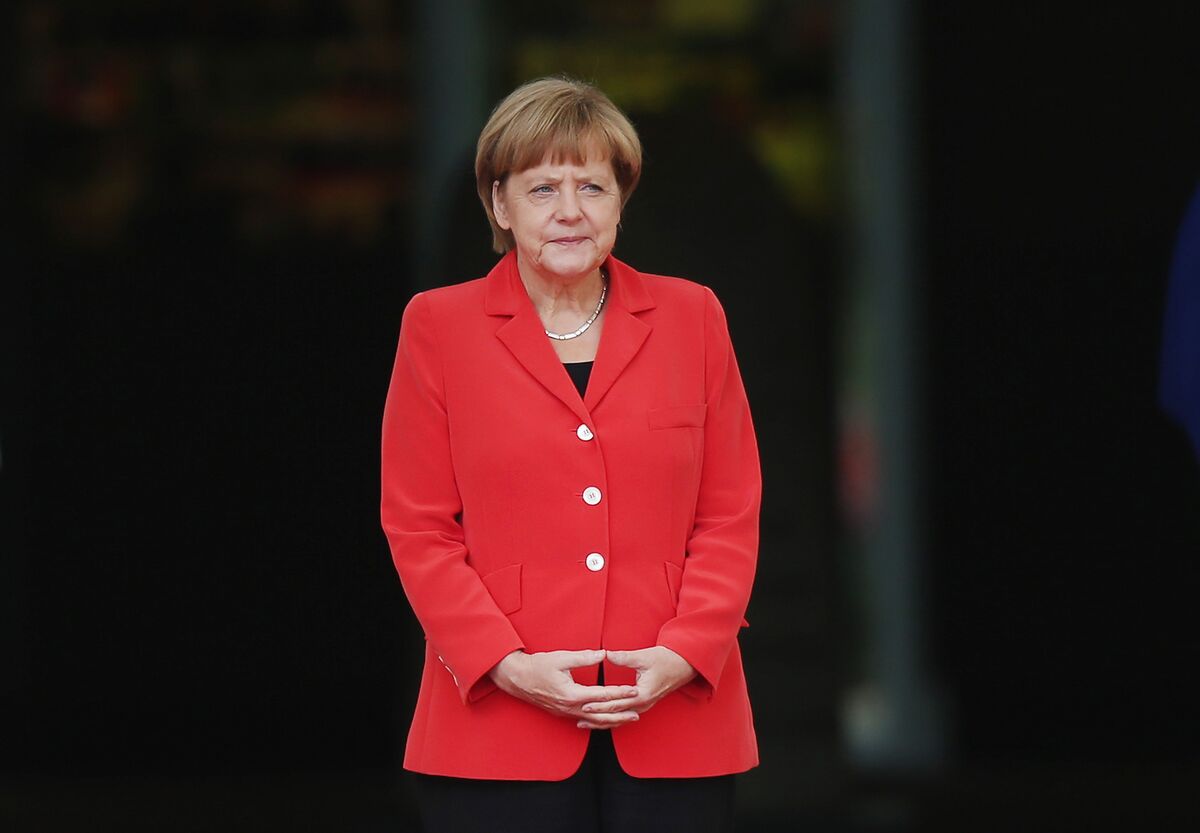
If Angela Merkel has emerged weaker from the fall election and failed attempt to form a coalition, then some in her party want to weaken her further still.
The chancellor’s refusal to govern Germany without a stable majority is emboldening critics of her 12-year hold on power, including members of her Christian Democratic Union who’d like to see her go.
As she seeks a rerun of her previous coalition with the Social Democratic Party, immigration hardliners and free-market CDU party members say such an alliance may be too high a price for assuring four more years for the chancellor. They are pressing instead for a minority government, fully aware that Merkel argues Europe’s biggest economy can’t afford the uncertainty of an administration dependent on ad-hoc deals with other parties to pass laws.
“A minority government is much more unpredictable for Merkel than another grand coalition” with the Social Democrats, Ulrich Sarcinelli, a political scientist at the University of Koblenz-Landau, said by phone. Those within her party who advocate keeping the option open are doing so partly to “lay down markers for the post-Merkel era,” he said.
Merkel’s chancellery has the rumblings on its radar. A minority administration led by her Christian Democrats might well collapse within a year or two, according to two people familiar with the chancellor’s thinking who asked not to be identified discussing strategy. Such a scenario would most likely trigger an early election and open the floodgates for a party renewal that sweeps Merkel aside, they said.
Merkel Challenged
The list of prominent supporters of minority rule reads like a Who’s Who of Merkel baiters:
While the chancellor favors another “grand coalition” of the two biggest parties, SPD head Martin Schulz has left open which level of cooperation his party is willing to offer. SPD delegates voted on Thursday to open exploratory talks with Merkel.
Conventional Wisdom
Everyone from Merkel’s aides to French President Emmanuel Macron and Bild, Germany’s most-read daily newspaper, is leaning on the SPD to take the plunge and be Merkel’s junior partner again. So is President Frank-Walter Steinmeier, a Social Democrat who now has a non-partisan role in helping party leaders find a path to a stable government.
For all the flirting with unconventional options, no German chancellor since World War II has governed without a formal alliance underpinning the government. That penchant for stability -- and the expectation by Germany’s allies that it will anchor Europe -- may play into Merkel’s hands after her first attempt at forming a coalition fell apart on Nov.
Polls suggest the chancellor can count on overwhelming support among her party’s base, even after leading her bloc to its worst electoral showing since 1949. A Forsa poll published Monday gave Merkel a 60 percent approval rating, well above the levels for Macron or U. President Donald Trump.
Even governing without a majority wouldn’t necessarily spell the end of Merkel’s career, Sarcinelli said.
“Merkel is an extremely agile power politician who might even survive a minority government,” he said. “People have tended to underestimate her in the past.


0 comments:
Post a Comment